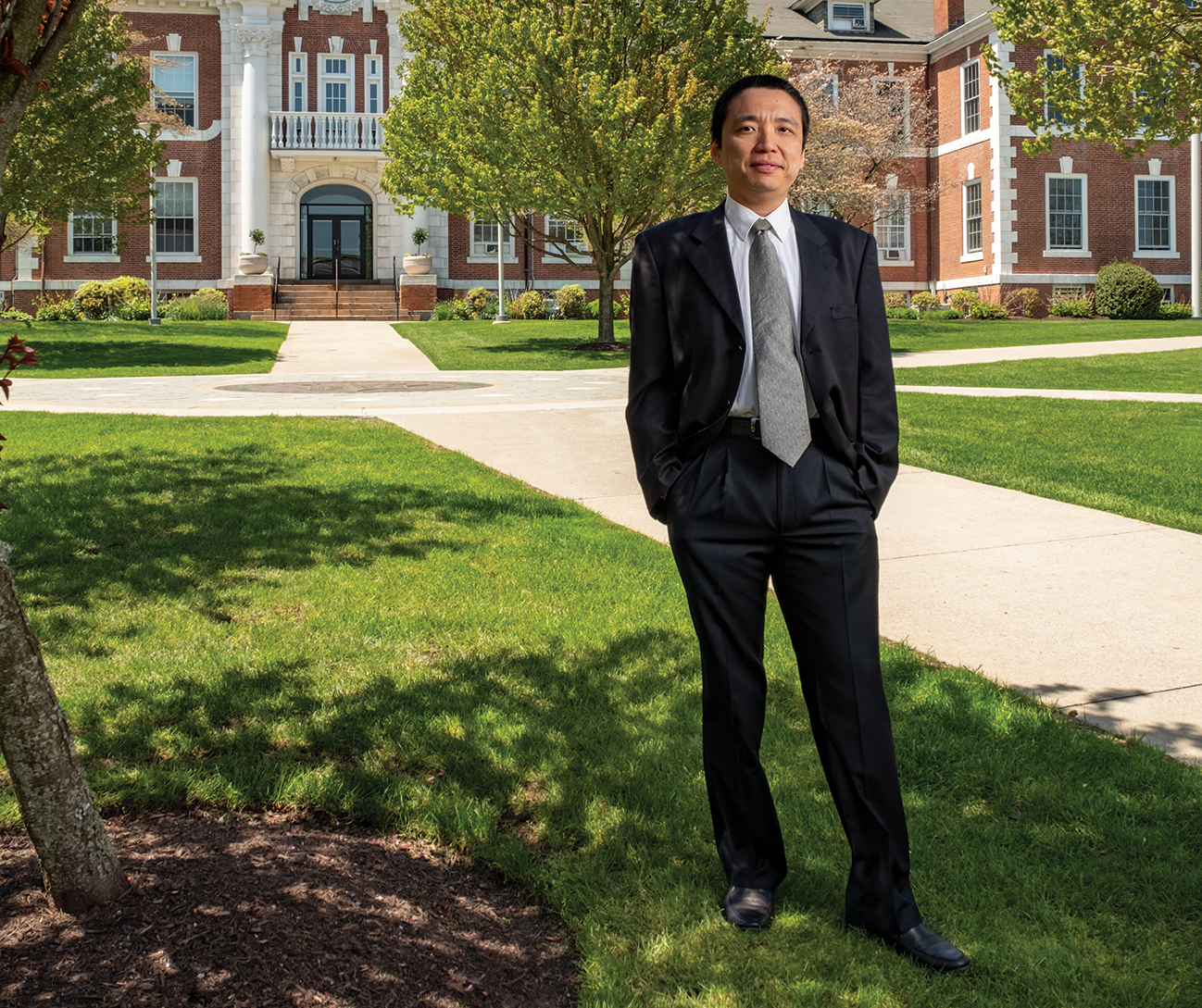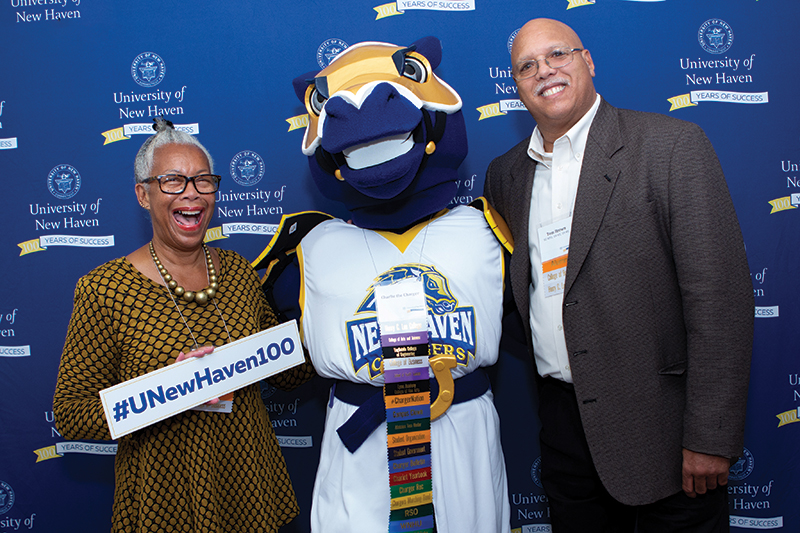
Innovation
Agents of Change
Jonathan Spiegel ’17, Daniel Delgado ’17, Jillian Jacques ’19, and Amanda Arango ’19, define a new generation of innovators and prove that nothing has to be the way it is now.
ALUMNI MAGAZINE
Chong Qiu, Ph.D., assistant professor of chemistry, earns the National Science Foundation’s Early Career Award.

University of New Haven chemistry professor Chong Qiu, Ph.D., has been awarded a five-year, almost $700,000 National Science Foundation (NSF) Early Career Award for his groundbreaking research on aerosols — tiny particles suspended in the air — in the atmosphere. Qiu is the first University of New Haven faculty member to receive this National Science Foundation award.
Qiu will use the funding to advance his research that has the potential to shape under- standing of the impact of air quality on climate change, weather forecasting, and human health.
"National Science Foundation Early Career Awards are coveted by the very best faculty at the very best universities," said Ron Harichandran, Ph.D., dean of the University’s Tagliatela College of Engineering, noting that Qiu’s fellow recipients of NSF’s Early Career Award this year are professors at Cornell, Dartmouth, Harvard, and NYU. "This prestigious award is a great honor for Dr. Qiu and the University of New Haven."
"We need to continue to encourage talented students to pursue STEM fields and galvanize support for science and discovery." Chong Qiu, Ph.D.
Qiu’s research is investigating chemicals, such as amines — nitrogen-containing organic compounds that are derived from ammonia — that he said were previously thought not to have a significant impact on the atmosphere.
"We recently discovered that reactions of amines play an important role in the formation and transformation of atmospheric aerosols," Qiu said. "We need to understand how the presence of amines in the particle phase affects aerosol properties," he added.
For the past two years, Qiu has worked with undergraduate and graduate students on this research. Members of his research team also have visited area high schools and middle schools to teach students how to collect micrometeorites from rainwater using tools designed from plumbing parts.
"We need to continue to encourage talented students to pursue STEM fields and galvanize support for science and discovery." Qiu said.
Aerosols: tiny particles suspended in the air
Amines: nitrogen-containing organic compounds that are derived from ammonia
Micrometeorites: micrometeoroid that has survived entry through Earth's atmosphere
Organic Compound: any chemical compound that contains carbon

Jonathan Spiegel ’17, Daniel Delgado ’17, Jillian Jacques ’19, and Amanda Arango ’19, define a new generation of innovators and prove that nothing has to be the way it is now.

In advance of our Centennial in 2020, we took the University of New Haven on the road, hosting a series of signature events to commemorate this milestone anniversary.

Tim Ryan ’94, EMBA ’96, head of the Culinary Institute of America, believes in working hard and eating well.